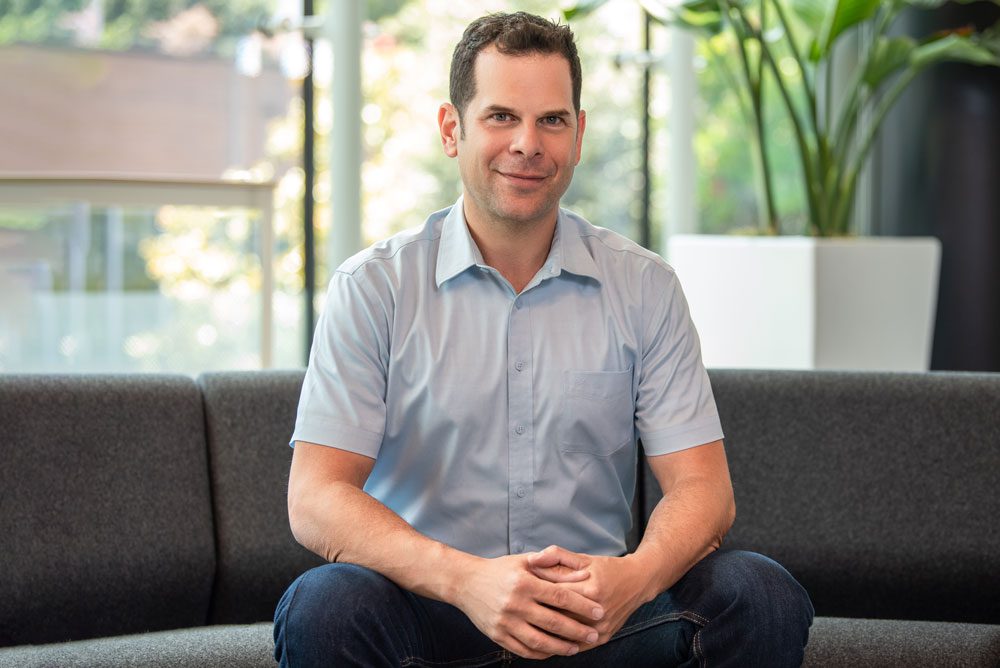Running a company is stressful even on the smoothest days. But when the world starts crumbling, figuring out priorities and keeping things going is even more daunting. Today, we spotlight Guy Bloch, the CEO of Bringg, and the challenges faced by his team as they manage a tech company amidst the turmoil in Israel and Palestine.
Bringg, an Israel-based tech company, has undertaken a mission to revolutionize the last-mile delivery industry. Their focus extends beyond logistics; it empowers businesses to compete effectively in the dynamic online marketplace. In practical terms, Bringg is rewriting the rules, making efficient and reliable deliveries accessible to businesses of all sizes.
The mission to democratize the last mile gains an added layer of complexity when business operations intersect with regional conflicts. Our conversation with Guy aims to shed light on the strategies, decisions, and the human aspects of steering a tech company through such tumultuous times. Highlighting especially how they leveraged Bringg’s platform to evacuate those in need as well as deliver resources to struggling areas.
This conversation delves into the intricacies of managing a business amidst conflict, unraveling the unique challenges and decisions that define leadership during tumultuous times. Our focus is on the resilience, strategic foresight, and collective effort required to keep a company thriving when faced with challenges that extend far beyond the usual realms of commerce. This is not just a story about a tech company; it’s about leadership, innovation, and the human spirit in the face of adversity.

Highlighted Excerpts
MOSHE: As you’re watching the news—you start thinking of the dozens or hundreds of employees that you guys have. What goes through your mind?
GUY: Well to be fair, we as an executive leadership team anticipated the worst situation in Israel a few months before October 7th. We had read about the developments in Israel. We saw the different warnings that the leaders of the army and intelligence forces shared publicly. And we realized that the probability of such a scenario was much higher than ever before.
As an executive leadership team, we wrote a contingency plan that simulated the exact escalation. So for us, that morning was really to wake up, comprehend the stream of events, understand that this was a severe escalation, and make a decision to push the play button on the contingency plan. So for us, managing the company operations during that morning was not under drama because the entire script was pretty much ready.
Email communication to customers and employees went out at noon that day. We knew many of the employees, customers, and partners would have so many questions for us. So email communication went out right away.
Part of the contingency plan was to divide the company into two operations. The operation outside Israel—everything pipeline, revenue, and customers was led by one of our executives who sits in London. And everything inside Israel was led by the executive team inside Israel, so we responded very quickly.
We were able to embrace the situation and respond very effectively and very calmly, which was very important to the employees later on.
MOSHE: So 10 percent of your Israeli workforce is called for duty. The remaining 90 percent of Israel is occupied with war, reading the news, and taking care of their loved ones. How do you maintain engagement in that situation?
GUY: It’s interesting because first of all everyone was shocked by the events even the employees outside of Israel. What we decided to do as a company is not to enforce one guideline to all employees. We allowed every employee to decide for themselves and their family in terms of how they wanted to respond to the situation.
We had two goals. The first goal was in the first 24 hours, connect with every employee, make sure that we know where they are, understand their needs, and can get a hold of them during this hard time. And be able to be a foundation for them to lean on in those hard moments.
The second goal was to get the employees engaged. And looking at thousands of volunteer drivers who enlisted themselves to carry through different assignments from evacuating people from war zones, and evacuating pets to escorting elderly people to hospitals. We were able to move equipment, food, and merchandise to the home front. And all of that together actually required an orchestration.
Everything needed to be digitized, and connected so it could be managed from command centers.
Together with the civilian command center, we set up Bringg to be the orchestration platform for all the support to the home front. So imagine within 48 hours, every employee of Bringg in Israel came out of the shelters and rolled up their sleeves to set up Bringg for Israel.
Our employees just felt that we always have the purpose of giving back to the community. But when you put it into action in times like that, the purpose is so deep that it just pulls out everyone.
And it’s to give back for something bigger than all of us, and that’s the people of Israel. That puts so much morale and motivation in our people. Just to see finance people, operations people going out to the command centers and work with drivers and dispatchers to enable them, work with dispatchers to enable them.
MOSHE: How did your customers react to this situation?
GUY: I was not surprised because I anticipated a big hug from the international community. It warmed my heart to see so many people just reaching out and sending their care. Asking how we’re doing, and how Bringg is doing, and sending us support.
There were even a couple of customers who followed up and checked in on me twice. So people really cared. I think it shows a lot about our partnership with our customers and how we approach our relationships.
But with that said, we took into account when we built the contingency plan that probably the tolerance will be short in terms of us taking care of our employees. But then they need to take care of their business and very quickly questions will come up in terms of how you’re going to continue maintaining your operations without disruption.
In that case, the fact that we were transparent, upfront, and had a contingency plan well defined before October 7, just increased our confidence. They saw zero disruption. And they highly appreciated the way we approached that. So we definitely had big support from our customers, but also big confidence in our ability to manage through this situation.
GUY: It’s important that the world and the tech ecosystem know that Israeli tech delivers no matter what. We are very strong-spirited people.
We know that from these hard moments, like any other tropical storm, tsunami, or major thunderstorm, there is always the day after. And it’s a shiny day and the sun is out. And life comes back to normal and those challenges serve you as an opportunity to grow and come out of that stronger and better than ever before as a country, as a society, as individuals, and definitely as the tech sectors in Israel. So, we are here delivering—no matter what.




